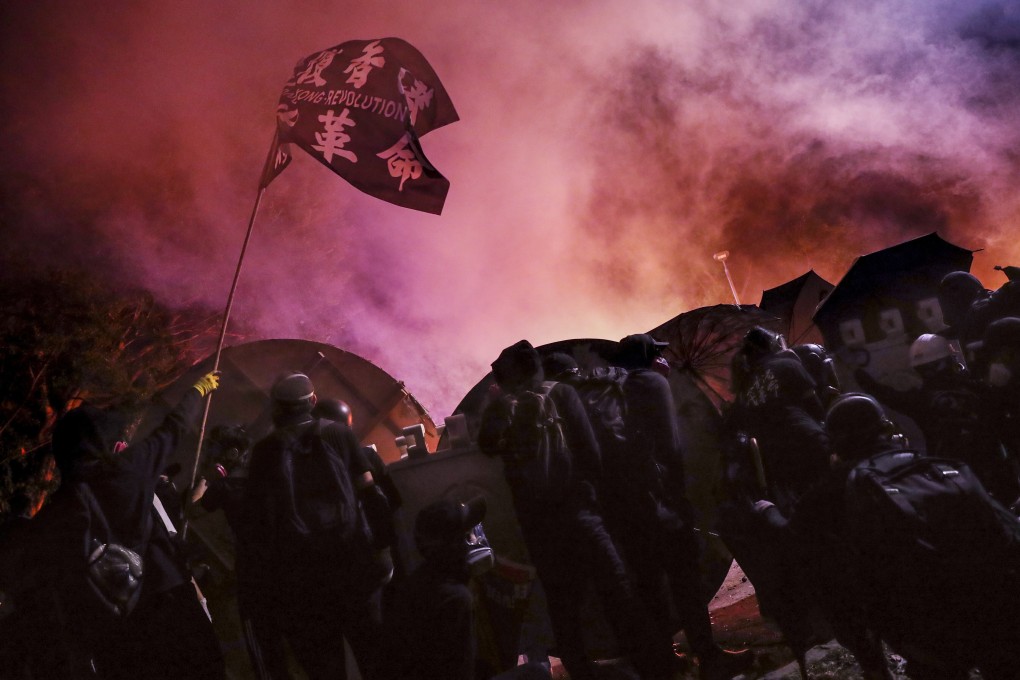Hong Kong protests: 2 students jailed for rioting over Chinese University clashes; 1 more handed prison term for violating mask ban
- Pair jailed for 54 and 45 months respectively, for roles in illegal demonstration at height of 2019’s anti-government protests
- Judge dismisses request for leniency, saying deterrent sentence is warranted

Vocational school student Cheung Chun-ho and CUHK undergraduate Tang Hei-man returned to the District Court on Wednesday after being convicted earlier this month of rioting and violating a ban on wearing masks at rallies during the protest at the Sha Tin campus on November 12, 2019.
Judge Clement Lee Hing-nin rejected a request from 20-year-old Cheung, who was found to have hurled objects at police that afternoon, that he serve time in a correctional facility in lieu of jail. Lee said the need for a deterrent sentence to protect law enforcement officers and the general public outweighed the defendant’s personal circumstances, despite his young age.
Lee said a jail term was also warranted in the case of Tang, 25, who was found to have abetted the violence that day through her black attire and 13-minute presence at the scene, even though she was not caught committing any violent acts.
The judge sentenced Cheung and Tang to 54 and 45 months in prison respectively. He also sentenced the two to six and three months respectively, for violating the mask ban, but ordered those terms to be served concurrently.
A third defendant, CUHK student Chan Hey-hang, 23, was jailed for two months for violating the mask ban that day.
The trio were among the first group of defendants to stand trial over the chaos at CUHK, which went down as one of the most violent episodes of the months-long protest movement that year.